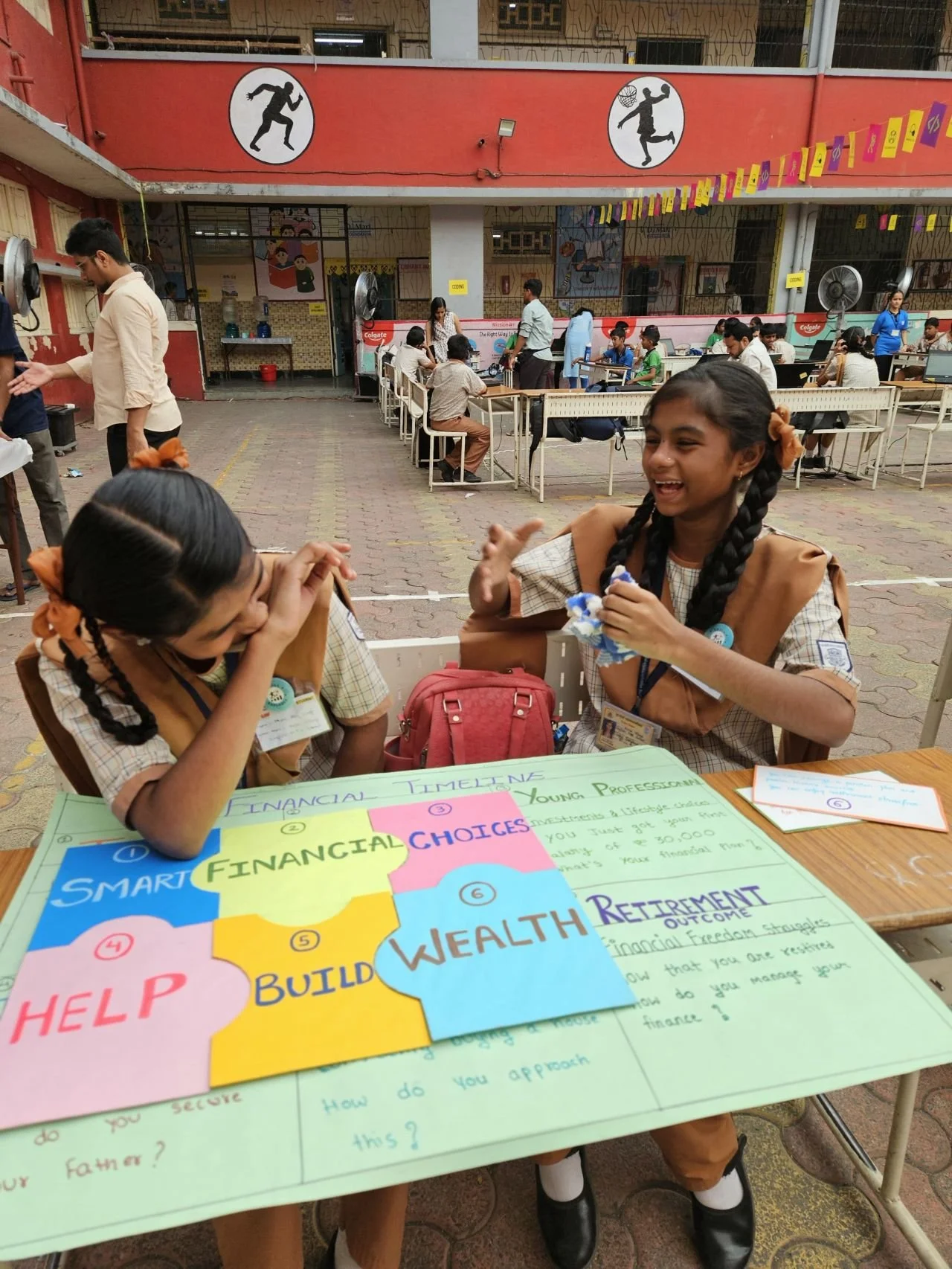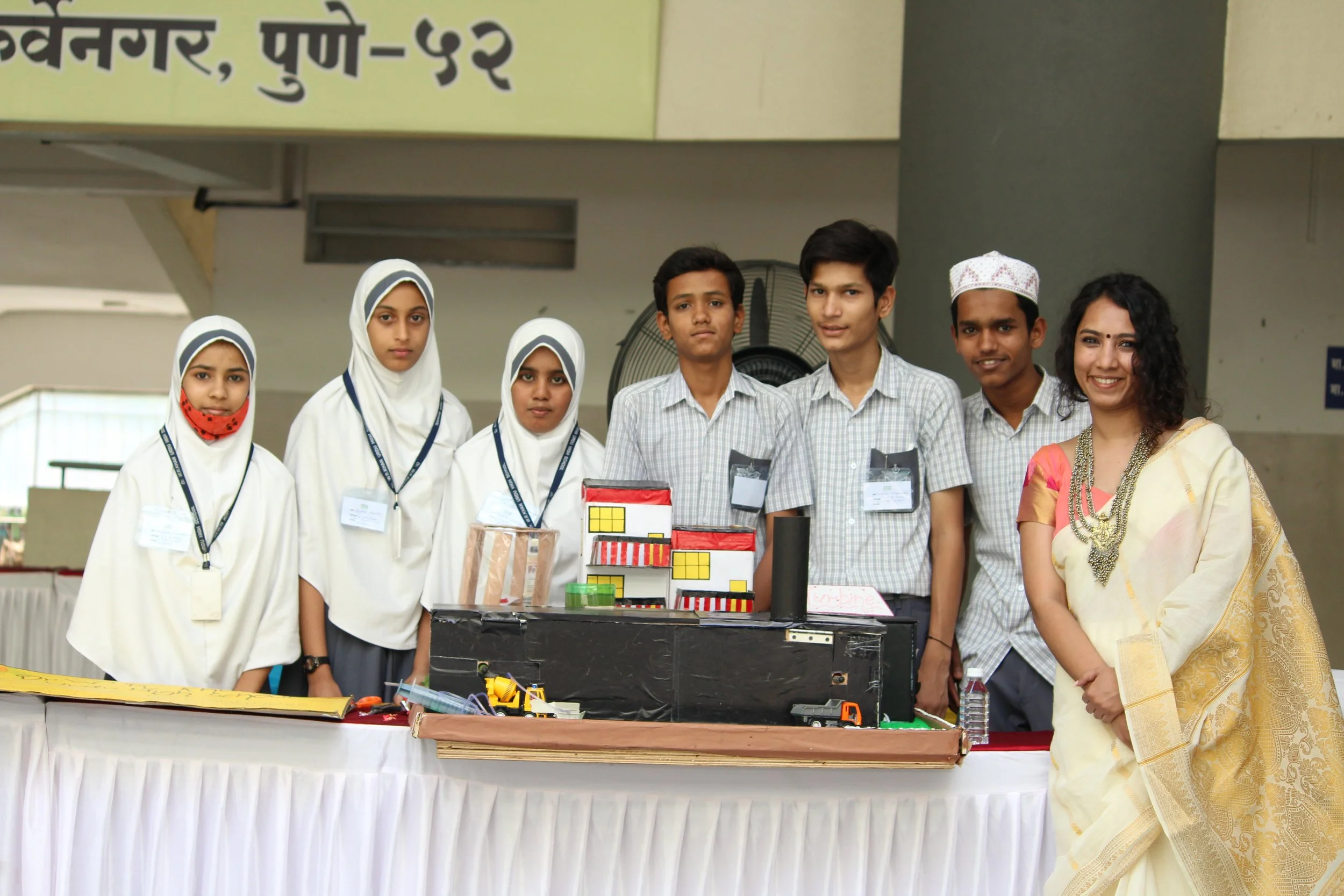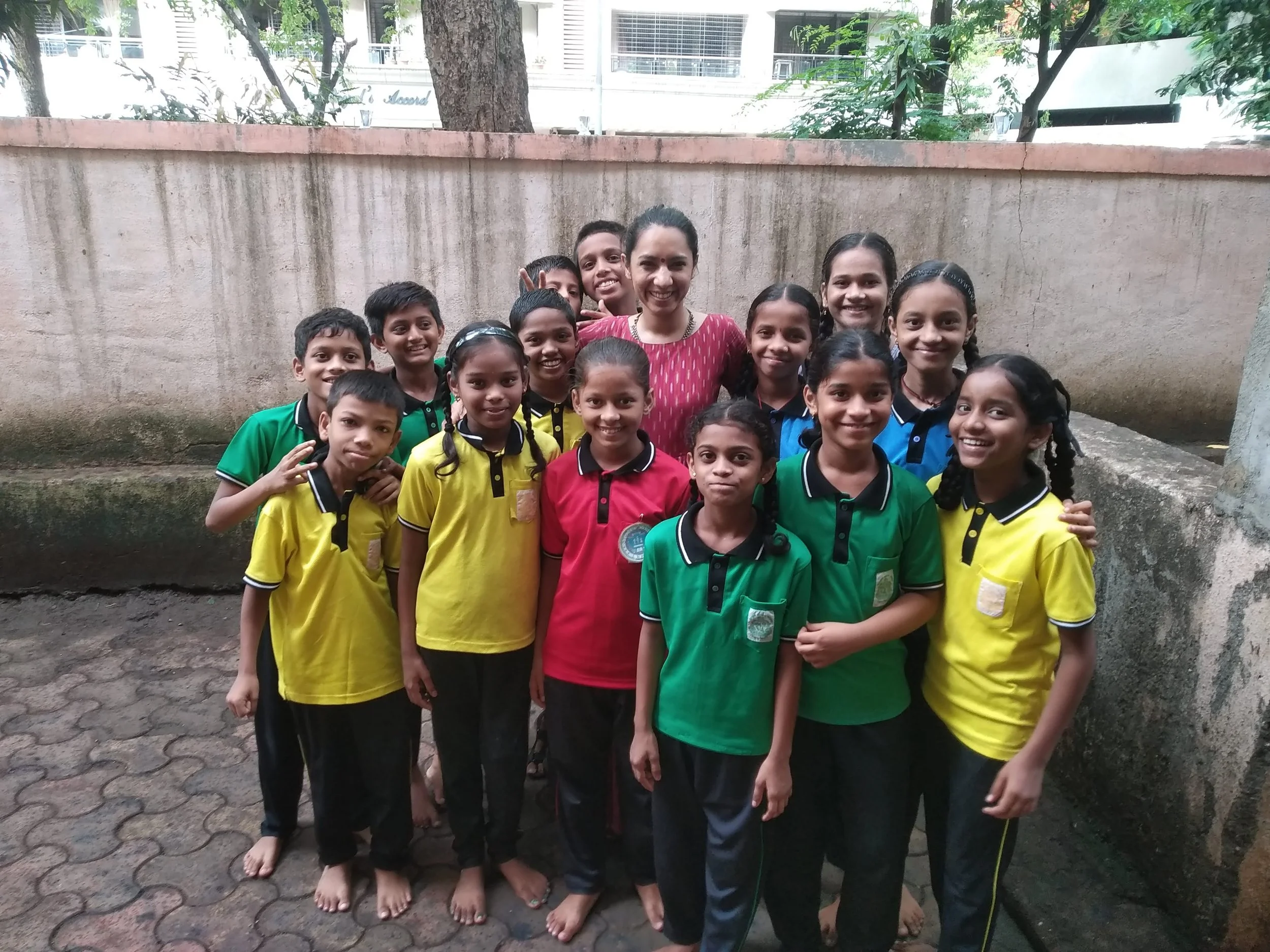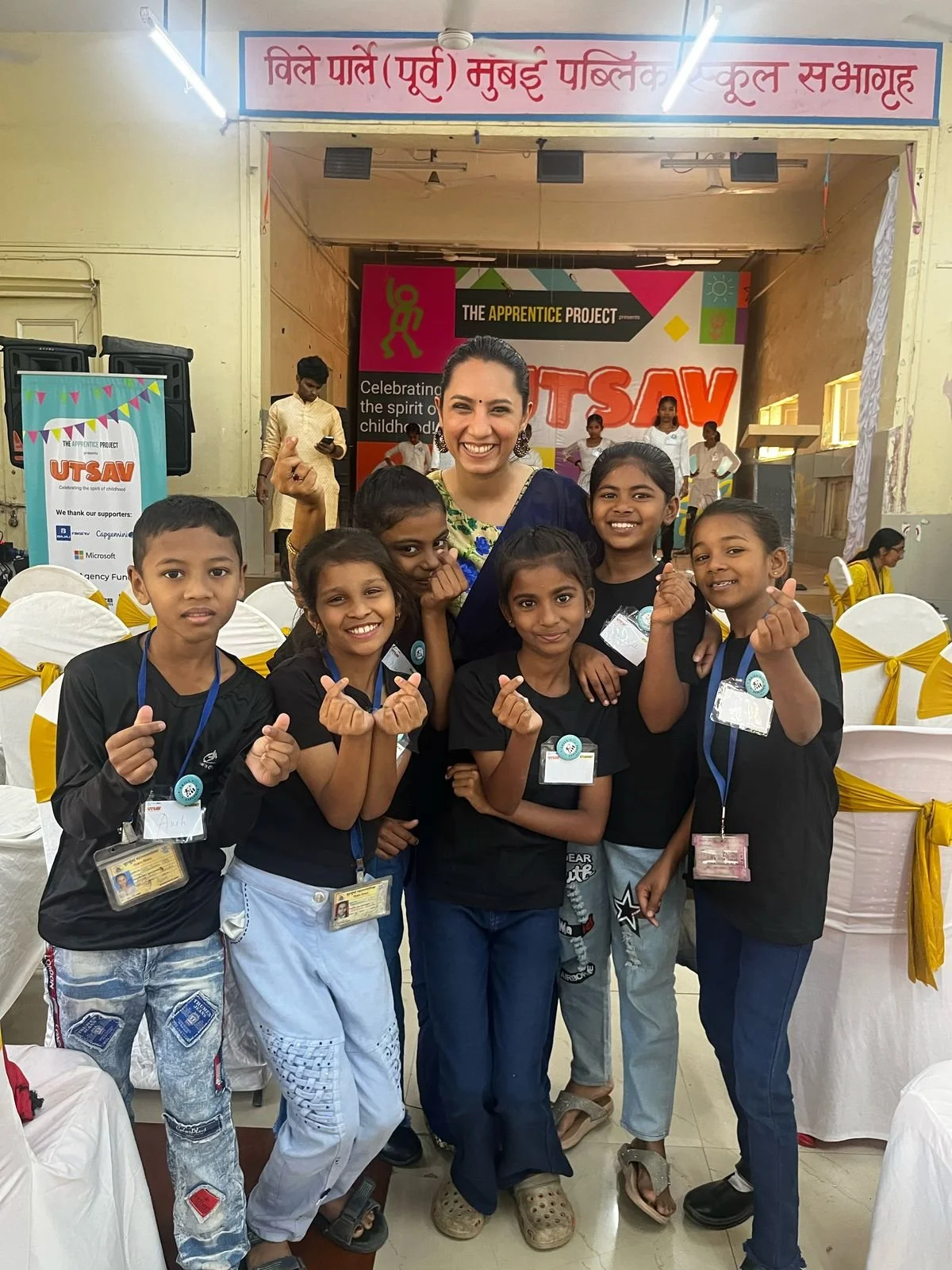Monica Pesswani On Empowering Indian Students With Joyful Skills-Based Education For The 21st Century
Monica Pesswani, the Director & Co-Founder at The Apprentice Project (TAP), an ed-tech nonprofit working to end educational inequity in India by equipping students with 21st-century skills.
A Fulbright and Aga Khan Scholar, she pursued her Master's in Public Administration at Harvard Kennedy School and holds a Master's in Education Management from Harvard Graduate School of Education, as an Aga Khan Scholar.
TAP has empowered 70,000+ children across 10+ states, with a vision to reach 250,000 students in 2025–26 using an AI-powered WhatsApp chatbot.
Through TAP, students have created over 10,000 SDG-aligned projects, contributing to the UN's Sustainable Development Goals, resulting in a 70% increase in life skills and a 75% increase in content skills.
Within TAP, Monica leads multiple verticals. Beyond her role at TAP, she is a Young India Fellow, a career coach, and an Anant Aspen Fellow. Additionally, Monica serves as a mentor to women entrepreneurs and has been recognised as the “Woman Entrepreneur of the Year, Social Sector” by the Government of India.
Monica discusses scaling equitable education solutions that equip underprivileged Indian students using personalised adaptive learning, and how young people can create transformative social change with the right tools and support.
Highlights from the interview (listen to the podcast for full details)
[Indio Myles] - To start off, can you please share a bit about your background and what led you to working in the space of education inequality?
[Monica Pesswani] - I’ve had a dynamic journey. I studied in a school where the priority was getting good grades. My parents, teachers, and entire education ecosystem told me that if I got good grades, I was going to succeed in life.
I’ve been a rule follower for most of my early years, so I believed that if I came first in class, I was going to succeed and do well. It even reached the point that if I even came second in class, I would sit and cry for two days straight because I felt like I was not going to succeed.
While schooling enabled me to get good grades, it was only after school I realised there was something missing in the overall narrative. I did get good grades, but somewhere I felt like I was failing in life. When I walked into university, I realised that I struggled to communicate with people around me.
I struggled to find myself; I struggled to problem solve, and it just felt like I did not belong. That lasted for quite a long period of time, and it was only after gaining more experiences through engineering and working in the IT industry that I realised that who we are is much more than our grades. The narrative that I lived with for the first 15 to 18 years of my life was an incomplete one.
It was during my time at the Young India Fellowship, where I pursued my master’s in leadership and liberal arts, that I was first looked at as a human being with unlimited potential, not just as a student who had to get the best grades.
This completely transformed how I see myself and what I believe I’m capable of. It was also the first time that I learned leadership through music, history through theatre, and critical thinking by understanding Bollywood and Indian cinema. I didn’t even know that was possible.
That changed me fundamentally at the core, but after my graduation, when I came back home, I realised that thousands of Monicas were still stuck in that rote learning, grade-based education system. That was the reality all around me. My younger sister was experiencing it. That’s when I knew that something had to change. I didn’t know how, I didn’t know what to do about it, but the seed was sown in some way.
Post my graduation at the Young India Fellowship, I had the opportunity to set up a 3D printing and AI startup. Having been in the world of technology early on, I was able to see the impact technology had in bringing change. Whether it was in the healthcare space, the food and beverage industry, or the consumer space, I could see that change was possible by using technology in a smart and conscious way.
This led me to start thinking about how we could use it to solve problems I saw in the education sector. My sister was a Teach For India Fellow, and while I had taken a break from everything in my professional space to figure out who I was and what I really wanted to do, I was volunteering in her classroom.
I also interned with Teach For India, which is the biggest Indian ecosystem that brings individuals across the country to teach in government schools. It was while interning with them I realised what I had experienced at the Young India Fellowship could be brought into government schools in India.
The universe happened to introduce me to my two co-founders, Anand and Prashant. They were also talking about holistic education. We came together not knowing how we were going to bring about change but being certain about three things: education should be beyond academics, it should bring joy, and it should help us find our voice and build agency. That’s how TAP was born.
After we started TAP, we worked directly with schools. We were on the field all the time, looking at school-based ecosystems. Then COVID hit. When COVID hit, it became our CTO in some way. We always knew we wanted to create national transformation, and COVID helped us. It nudged us (or even pushed us) to expedite that thinking, and that led us to move to an EdTech model, and that’s where TAP began.
The Harvard School of Education helped us pick up global pedagogies that we could use within the Indian ecosystem, and the Harvard Kennedy School became a tool, an ecosystem, and an enabler for me to bring about national change. How do you look at policies? How do you influence policy execution in the field? How do you bring about a movement through a network of changemakers? That is what the Harvard ecosystem offered.
Coming back to India, I now live in a forest. I live in an ecosystem that works towards conscious community design. It’s called Auroville, and I continue doing what I do, learning from the children and loving the ecosystem they build through the world of TAP.
You are a co-founder at The Apprentice Project or TAP; I’d love if you could share a bit more about this organisation. How is it empowering students with 21st century skills, which are so important in education today?
I’ll start by defining the problem and what led us to design the solution. Over 250 million children from underserved communities in India are stuck in a rote learning and grade-based education system that doesn’t empower them to thrive in the 21st century.
The reality of the landscape is that even after graduation, around 50% of Indian students are unemployable. This is due to a lack of what we call 21st century skills or leadership skills.
The dropout rate in schools is also high because students believe that there is no real-world application of what they’re learning. The larger belief is if I’m going to school and my reality is going to stay the same as what I see today, why should I go to school? Why should I learn? Why should I put in effort to upskill myself when nothing is going to change in my world? This is the reality we are hoping to solve through TAP.
TAP starts by first giving the child the opportunity to learn what they love. For the first time in their academic lives, a child chooses between visual arts, performing arts, STEM, and financial literacy. They choose what they want to learn so that they experience joy in learning.
Using this choice as a medium, we build skills like problem solving, critical thinking, and communication. We then connect that learning to real-world opportunities. This could be solving community problems, where everything the child works on is seen through the lens of a project. Every project is something the child is doing to enable their world to get better.
We connect them to career awareness and readiness opportunities so that they see how life can change when there is joy, skills, and opportunities coming together for the child. This is our larger approach towards bringing in transformation.
On the ground, we do this by using a WhatsApp-enabled chatbot. This started because we realised that national transformation in India requires solutions that can work at scale. With the advent of technology, smartphones have become very accessible, even in the most remote regions of India.
We wanted to use a medium that all parents and children are very comfortable with. Children as young as those in the third grade use WhatsApp by accessing their parents’ phones, so we wanted to use that to enable learning that they will enjoy.
Through TAP, we are trying to introduce personalised adaptive learning into the lives of children. Let’s assume Indio and I both pick coding. We both love coding, but you are already good at it while I am still learning. You should get content that challenges you so that you don’t get bored, and I should get content that motivates me and doesn’t make me feel like I don’t know enough or that I’m not doing well enough.
Through personalised adaptive learning, we are trying to bring education to where the child is, instead of expecting the child to catch up to education. That is the larger goal: we should meet children where they are. We should help them find their voice and build agency within them. We are doing this through the medium of a friend they have in their pockets, their phone.
Do you see any other ways that technology is transforming the learning outcomes for the students you’re working with?
I feel like technology can be one of the biggest enablers in an ecosystem like India. One of the biggest problems we have (apart from meeting children where they are in their learning experience) is feedback and assessment.
In India, an average government classroom has 60 students and one teacher, which means it is almost impossible for children to get feedback on what they are learning, how they’re doing, or even where they are on the scale of learning.
What this does is leave me, as a child, not knowing where I need to improve. I don’t know what I’m doing well, which means I’m either demotivated, scared, or lost. Technology can help us solve this problem at scale.
We are using AI to provide automated assessments that are personalised to the submission of each child. This is something we’ve piloted. What this could do is help every child feel seen and heard. It’s important for a child’s learning journey to know that somebody cares about where the child is at, somebody knows what the child is good at, and that they will receive guidance to grow in the areas where they struggle.
We are hoping to introduce AI-based assessments, and we are also the first organisation in India trying to introduce AI-based assessments specifically for assessing 21st century skills.
For example, if one person is more confident than another, they will receive personalised feedback for their submissions, told where they are excelling, and given areas for development and improvement. The other will receive feedback that’s relevant to them specifically.
I feel like the teaching and assessment gap in India (especially when it comes to personalisation) can be solved and eliminated through technology.
I would love to hear your thoughts on the role of youth and the younger generation. What role do you think they will play in leading the development of social or environmental impact-led projects and initiatives that will help make the future a better place and help communities thrive?
One of my biggest learnings through TAP has been that children have the answers.
Children are so much more observant than adults because not only do they see the symptomatic problems, but they are also living within these ecosystems where they experience these problems firsthand. They’re very good at identifying the root cause of what the problems are. The beauty is that I feel the most innovative, impactful, and scalable projects are already thought of by children. All they need are the tools to turn those ideas into reality.
For example, I’ve seen children design projects like earthquake simulators because they saw earthquakes reoccur in their communities. They lost homes and family members, and they said, “If this can be predicted, I’m going to find a way to do so and solve it.”
When it comes to financial literacy, we’ve worked with seventh-grade children who’ve designed differentiated investment games. I’ve learned how to invest through the children we work with, and I still struggle with it! They sat down and taught me things like, “this is the percentage you should put into risky investments, this is what should be safe, and this is how you can support yourself when you’re old.”
I feel like the solutions already exist within them. What I’m also noticing is that younger kids today are very conscious about designing a world that is better than what they see today. Very early on, they are aware that this world needs fixing and tweaking in some way. It could be because of the exposure they have, but they are very aware and highly driven.
Most children we work with come up with solutions we would never have thought of, because they believe and predict that this is going to be the need. For example, if we don’t solve the water crisis in India today, tomorrow my parents, children, family, and city will suffer. They are designing water irrigation projects today to solve problems that might become urgent 10 years from now.
I believe change will come through them. They already know the solutions; they just need the tools to make things a reality. They’re going to teach us. I believe they will tell us what the world needs in the coming years. We just need to listen to them and believe in them.
Do you see any other key support mechanisms, networks, or opportunities for organisations to better support the younger generation and help equip them to tackle these problems and generate solutions?
It’s up and coming in the Indian ecosystem. There are incubators helping children look at problems and develop solutions. This empowers them not just from a project lens, but also in terms of who they are as individuals. How do they need to build themselves to be more equipped to solve these problems?
It could range from identifying what their strengths are, to determining the solutions they want to design, to connecting them with industry leaders who can help them build better solutions. It also involves equipping them to define what kind of life they want to design based on the strengths they possess.
In India, there is a new wave of incubators for children who want to take what we call the entrepreneurial track, but it’s much deeper than that. Anyone who has an idea and wants an implementation ground, incubators, in my opinion, could be an incredible solution to help them identify themselves and clarify what they want to do in the world they exist in.
While we’re talking about the future, what do you see for the future of TAP? What do you think is next for the organisation in terms of expanding its reach and trying to support more children? Just share a bit with the audience about where your head’s at in that space.
A lot of people in the development sector will align with this. We are trying to master the balance between breadth and depth. While we are scaling, and we are using technology as a medium to scale, this year we are hopefully going to impact 250,000 children. But then the test is this: can we create the same kind of impact at that scale? Many stories and history tell us that there’s often a seesaw effect, so we are asking ourselves, how do you create that balance?
This year for us is about perfecting the tech solution we have, from personalised adaptive learning to personalised assessment and feedback. It’s also about understanding the needs of different state governments and catering to contextual learning for those states, while also understanding what at scale breaks and what helps us bring that balance in.
If I look at the short term, this year is going to be our biggest test because with scale, we have high goals for ourselves with respect to impact. It’s also going to be a year of quick pivots. We are going to know very quickly what’s not working when we operate at the scale we are targeting.
Hopefully, we will learn through learning, pivoting, and failing. We are going to fail a lot this year, but failure teaches us more than points of success, so we are very excited about this.
Do you have any advice for an aspiring changemaker or someone who sees a systemic problem they want to address?
If you know the problem (even if you don’t know whether your solution will work or not) just pilot it. When we piloted TAP, my co-founder started with one classroom, the classroom he was teaching in. He introduced football into his classroom because he thought, the children aren’t enjoying sitting in class all day long, and he wanted them to experience joy. He understood and loved football, so he decided to see if that brought about change.
Those football sessions connected the dots for him. He realised, “I’m bringing joy, so how do we do more around joy?”
I feel like when we see a problem, we put a lot of pressure on ourselves to solve it deeply, to bring in the perfect solution, to know exactly what works. But I would say just pilot something small and enjoy the failure that comes with it. We failed many times. The idea is that now we know what doesn’t work, so we’ve eliminated those things and moved toward what does work.
I would say pilot it and enjoy that initial phase. There was something special about those early days when it was just 50 children. It was magical because you can pivot so much. There’s so much flexibility in the beginning.
What inspiring projects or initiatives have you come across creating a positive change?
Within India, I would say there are organisations like Rocket Learning, which is using technology to enable parents to support learning for their young children. There’s also Truchum and Teach For India, so I feel like the list could be endless.
There’s also an organisation in the U.S. called Thrive, which is tackling bullying in the social media space. They’re doing an incredible job. The founder is an incredible individual with lots of insight and experience, so I would recommend looking into that.
To finish off, are there any books or resources you would recommend for our audience to check out?
I learn more about entrepreneurship and education through sources that are not directly linked to education. Tuesdays with Morrie is my favourite. I feel like it’s helped me figure out what is important to us as individuals and how each day matters. When we look at solving a problem, it’s comforting to know that each day matters.
I also love Simon Sinek. All his podcasts and videos are so inspirational. Atomic Habits is another one I’d recommend. I’m someone who has struggled with doing so much and having so much on my plate, and Atomic Habits has helped me break things down and draw in effective practices.
Initiatives and people mentioned on the podcast
Recommended books and Resources
Tuesdays with Morrie by Mitch Albom
Atomic Habits: An Easy & Proven Way to Build Good Habits & Break Bad Ones by James Clear











